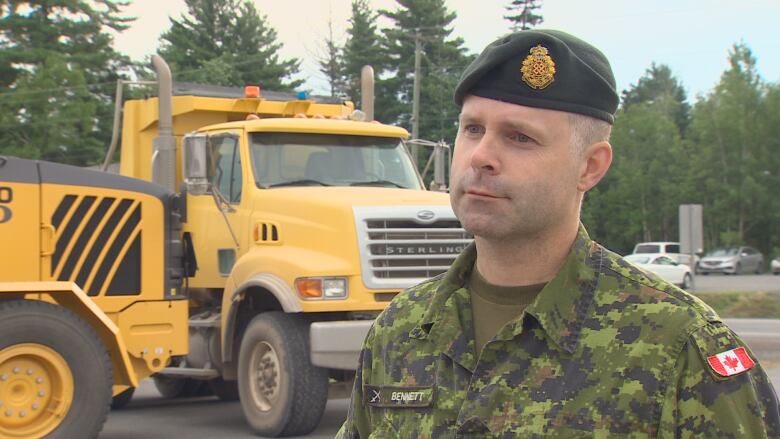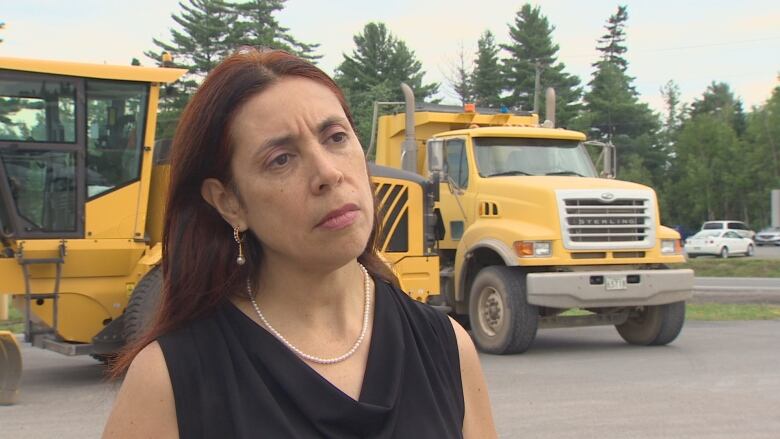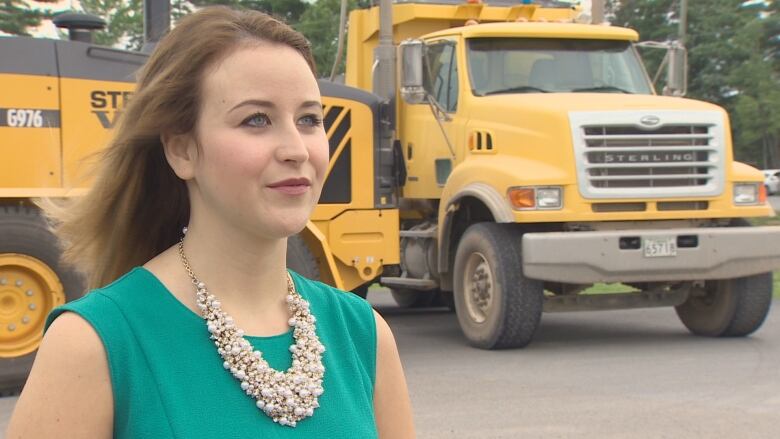Base Gagetown tests biofuels in non-combat vehicles
Military base is hoping to one day produce between 4,000 and 5,000 litres of bio fuel
Base Gagetown is undergoing a pilot project aimed at reducing its fossil fuel use.
The base is fuelling some of its non-combat vehicles with a mixture of diesel and bio fuel with thebio fuel makes up five per cent a full tank.
The officer in command of the transportation company at Base Gagetown saidthe first step is to randomly put the fuel mixture in some of vehicles.
"We're running blind tests on our equipment to see what effects on the equipment that we have presently, without necessarily notifying the drivers that we've put biofuel diesel into their vehicle," said Maj. Gordon Bennett.
- Base Gagetown gets $38M in federal funding
- Light armoured vehicle monument delivered to Oromocto
- New Brunswick DART members return from Nepal mission
The reason for the secrecy is so drivers don't automatically perceive a difference in the operation of the vehicle, even if one doesn't exist. The same principle is used in many studies.
Frying oil tapped into

"We have kitchens here that feed you know hundreds of soldiers a day. We use fry oil there. Typically what will happen is the fry oil after a certain period of time is no longer suitable for continuing to fry food," said Bennett.
Megan Stewart is an intern on base and holds a degree in biology from Mount Allison. When she was first told of the idea, she didn't know where to start.
"We started off in May. He pitched the idea to me and I didn't really know where to start asking for help. So I actually pitched the idea to an old chemistry professor at Mount Allison and he directed me to a chemical engineer," said Stewart.
"We actually started producing in June and finished producing about two days ago."
Simple process

"It's not a difficult process. It's a very straight forward process. The only thing is we had to be very careful in processing and polishing up the bio diesel. But it's a very straightforward process from an engineering process," said Romero-Zeron.
Bennett first had the idea of the project after reading about a similar one in the United States.
"A couple of months ago I found an interesting project down in California that was using biofuels for aviation fuel," said Bennett.
"I've always been interested in biofuels, I've been looking at it for a number of years."

"Obviously,renewable resources is the way of the future, and oil is going to run out eventually. So it would be nice to be able to produce something locally, and easily and in an environmentally friendly manner," said Stewart.













_(720p).jpg)


 OFFICIAL HD MUSIC VIDEO.jpg)
.jpg)



























































































